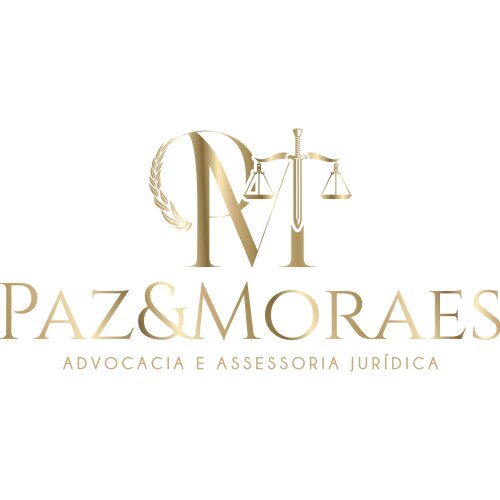Best Discrimination Lawyers in Brazil
Share your needs with us, get contacted by law firms.
Free. Takes 2 min.
Or refine your search by selecting a city:
List of the best lawyers in Brazil

About Discrimination Law in Brazil
Discrimination in Brazil is addressed under several laws and constitutional provisions that seek to ensure equality and protect individuals' rights. The Brazilian Constitution of 1988 is a cornerstone in the fight against discrimination, as it prohibits any form of discrimination and promotes equality. Additionally, the country has enacted specific laws to target discrimination based on race, gender, sexual orientation, disability, age, and religion. Prominent laws include the Racial Equality Statute, the Maria da Penha Law (dealing with gender-based violence), and the Law on the Inclusion of People with Disabilities, among others. Despite these legal frameworks, discrimination continues to be a significant issue, making legal redress crucial for affected individuals.
Why You May Need a Lawyer
There are multiple situations where individuals may seek legal assistance regarding discrimination. You may need a lawyer if you have experienced unfair treatment at work due to your race, gender, or disability. If you face discrimination in accessing education, healthcare, or housing, legal expertise can help enforce your rights. For those subjected to hate speech or discriminatory practices on social platforms, a lawyer can guide them in filing complaints. Another situation may involve needing advice on dealing with non-compliant businesses or institutions not adhering to anti-discrimination laws. Consulting a lawyer ensures that your case is addressed appropriately, and you receive fair treatment as per the law.
Local Laws Overview
In Brazil, several laws aim to curb discrimination and promote equality. The Federal Constitution prohibits discrimination based on race, ethnicity, gender, and other factors. The Racial Equality Statute focuses on eliminating racial inequalities and promoting equal access to opportunities. The Maria da Penha Law addresses violence and discrimination against women, establishing protective measures for victims. Furthermore, the Law on the Inclusion of People with Disabilities mandates accessibility and equal rights for disabled individuals. Additionally, labor laws prohibit discriminatory practices in the workplace, ensuring fair treatment for all employees. Understanding these laws is essential for recognizing when they have been violated and seeking appropriate remedies.
Frequently Asked Questions
What constitutes discrimination under Brazilian law?
Discrimination in Brazil includes unfair or unequal treatment based on race, gender, religion, disability, age, sexual orientation, and more, in various societal settings like employment, education, and public services.
How can I prove discrimination occurred?
Proving discrimination involves gathering evidence such as documentation, witness statements, recorded interactions, and any other material support demonstrating the unfair treatment and its discriminatory basis.
Can I file a complaint anonymously?
While some organizations may allow anonymous complaints, legal procedures often require the complainant to be identified for the case to proceed officially.
What are possible legal remedies for discrimination?
Legal remedies can include compensation for damages, reinstatement in employment, cessation of discriminatory practices, and in some cases, punitive measures against the offender.
Are there any time limits for filing a discrimination complaint?
Yes, Brazilian law typically mandates specific timeframes within which a complaint must be filed. For labor-related discrimination, complaints should usually be filed within two years from the occurrence.
Is discrimination addressed criminally in Brazil?
Yes, certain acts of discrimination, particularly those involving racial hatred or incitement of violence, can lead to criminal charges and prosecution under Brazilian law.
Can foreigners in Brazil seek legal protection against discrimination?
Foreigners are protected under Brazilian anti-discrimination laws and can seek legal recourse for unfair treatment based on nationality or ethnicity.
What role does the public prosecutor play in discrimination cases?
The Public Prosecutor's Office can be involved in investigating discrimination complaints, especially those impacting public interest or involving government entities.
Are businesses required to prevent discrimination?
Yes, businesses in Brazil are legally mandated to prevent discrimination in their operations and promote equal treatment for all employees and customers.
How does Brazilian law address discrimination against LGBTQ+ individuals?
Brazilian laws, reinforced by judicial decisions, have established protections against discrimination based on sexual orientation and gender identity, promoting equality for LGBTQ+ individuals.
Additional Resources
For those seeking more information or assistance with discrimination issues, several resources can be beneficial. The Ministry of Human Rights and Citizenship offers support and services for victims of discrimination. The Defensoria Pública provides free legal aid for those unable to afford a lawyer. NGOs like Instituto Geledés and União de Negros Pela Igualdade focus on fighting racial and gender discrimination. The National Council for Combating Discrimination and the Brazilian LGBT Alliance are also valuable resources for specific discrimination types.
Next Steps
If you need legal assistance relating to discrimination in Brazil, consider consulting a lawyer who specializes in discrimination law. Document all incidents and gather relevant evidence to support your case. You can approach organizations offering free legal advice or seek guidance from federal and state human rights bodies. Initiating a formal complaint with the relevant authority is crucial to ensure your issue is addressed under legal frameworks. Remember, taking prompt action can significantly impact the resolution of your case.
Lawzana helps you find the best lawyers and law firms in Brazil through a curated and pre-screened list of qualified legal professionals. Our platform offers rankings and detailed profiles of attorneys and law firms, allowing you to compare based on practice areas, including Discrimination, experience, and client feedback.
Each profile includes a description of the firm's areas of practice, client reviews, team members and partners, year of establishment, spoken languages, office locations, contact information, social media presence, and any published articles or resources. Most firms on our platform speak English and are experienced in both local and international legal matters.
Get a quote from top-rated law firms in Brazil — quickly, securely, and without unnecessary hassle.
Disclaimer:
The information provided on this page is for general informational purposes only and does not constitute legal advice. While we strive to ensure the accuracy and relevance of the content, legal information may change over time, and interpretations of the law can vary. You should always consult with a qualified legal professional for advice specific to your situation.
We disclaim all liability for actions taken or not taken based on the content of this page. If you believe any information is incorrect or outdated, please contact us, and we will review and update it where appropriate.
Browse discrimination law firms by city in Brazil
Refine your search by selecting a city.












